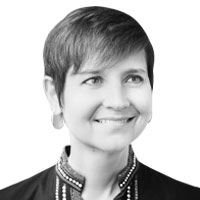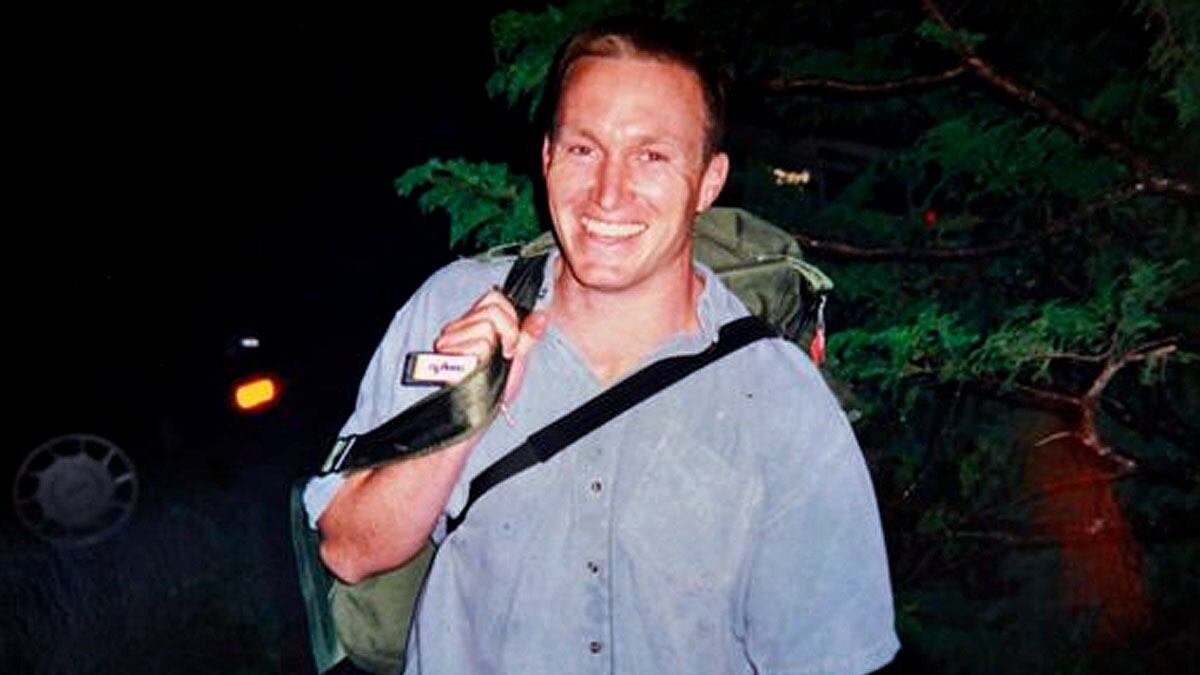I was home with my three children a week ago when my brother's best friend called me, concerned. My brother Glen was in Libya, working as a security contractor, and he may have been at the U.S. consulate that had come under attack. My first instinct was not to panic: I was used to his being in dangerous corners of the world. Glen had been a Navy SEAL for 12 years—in and out of Iraq, Afghanistan, Mexico City. He had always come home. His friend and I told each other not to worry. We agreed to talk again as soon as we knew anything.

I got on my computer and sent Glen an email. “I’m worried,” I said. “You better email me this very second.” I started pacing around the house. Then I called a friend and told her, “What I need you to tell me right now is not to worry—it will all be fine.” And that’s what she did. I wanted to hear that and I believed it. Glen was so larger than life, so smart, so good. He would be fine.
Glen always said that if he didn’t know what he wanted to do by the time he was 30, he would become a Navy SEAL. He was a man of his word. He spent his 20s having adventures—he went to flight school, became a ski bum, taught white-water rafting. Anything that sounded challenging and cool, he was up for it. And then, as promised, he became a SEAL. When he made up his mind, there was absolutely no stopping him. I never doubted that he would succeed.
A half hour after that phone call last week, my brother’s friend called again. I answered the phone and said, “Tell me, tell me he’s fine.” I honestly thought that’s what I would hear. But the news was devastating. Glen had been killed in the attack on the U.S. consulate in Benghazi. I just crumbled.
My parents didn’t know yet. I had to figure out how to tell them, along with the rest of my family, which is a horrible thing. There’s simply no way to sugarcoat it; you just have to say it, and so I did. After that, there really were no words.
Last week, my family honored my brother’s life at the State Department and Andrews Air Force Base. We met the families of the three other Americans killed in Libya—Chris Stevens, Ty Woods, and Sean Smith. We spoke with President Obama, Vice President Biden, Secretary Clinton, General Powell, and other officials. All of the politicians were so warm, and I was struck by how much they knew about Glen. Joe Biden was probably the most genuine person I’ve ever met. He was really great with my kids—he was just so real. He handed my children vice-presidential coins and talked to them about what it means to have such a coin—he said it’s an invitation for the White House. He joked about their hair and his lack of hair. He was like a favorite uncle. Most importantly, he made us feel like Glen’s death was about more than what happened that day. It was about being an American, and being proud. We all hugged, many times.
My brother would have liked that. He, too, had a way of making people feel good. When you were with him, he made you feel like you were the most special person in the world.
Glen had loved adventure ever since he was a kid. We grew up skiing, horseback riding, hiking, and building fires at summer camp in our hometown of Winchester, Mass. He was two years older than me, and we became good friends in high school, running in the same circles. As a teen, he formed a group of close friends. That core group of guys expanded throughout his life as he traveled the world. He would find the most wonderful, charismatic people, pull them into his life, and never let them go. Then he would connect them to other amazing people—he was a connector. At his 40th birthday party two summers ago in San Diego, people flew in from all walks of his life—people who went to kindergarten with him, Navy SEALs, people who skied with him in Utah. It was a testament to a guy who kept in touch with people. We had quite a night.
His core guys are with me right now. They are his brothers, just as they are mine. Today we all gave a big toast to Glen. We laughed about his “lessons to live by.” There were so many Glen-isms, like, “A party shouldn’t stop the same day it begins.” Or, “Drive it like you stole it.” There were millions of them. I remember him saying things like, “Kids don’t need store-bought toys.” He thought a tin can and a stick would do just as well as any fancy toy.
Amid his world travels, he and I tried to connect at least three times a year. On those visits, he said very little about his missions. He kept it to the basics—the food was good, the guys were great, the gym could have been better. I do know that he had an adopted animal in just about every single city he went to—stray cats and dogs. I think he was very proud of his work in Iraq after Sept. 11. He felt like he really made a difference there. He described the taking down of the palaces, the amazing experience of seeing the country rally round and appreciate that the troops were there to help them. A lot of times people don’t know we’re trying to help, and I think he really felt the love at that time.
Glen and I had talked about the possibility that he could be killed in his work. He said, “Don’t cry for me—throw me a huge party.” We’re going to do that in a couple weeks. We will tell stories and laugh and be together and celebrate him. That’s what he wanted.
Today, we held his funeral in his hometown of Winchester. During the procession from the funeral home to the church, the streets were lined with hundreds of people. Schools were let out; there were bands playing. The street where we grew up—called Glen Road, incidentally—was totally decorated. People were holding signs. We have seen such a show of support—from both the town that we grew up in and the nation that we live in. We feel so much love.
I am remembering Glen today on a trip to Ireland we took together two years ago. We rode horses; we explored castles. We had such a wonderful time. It is one of my favorite memories of a man who was truly one of a kind—the most fun, kindhearted, adventurous, spirited, genuine man and brother.






